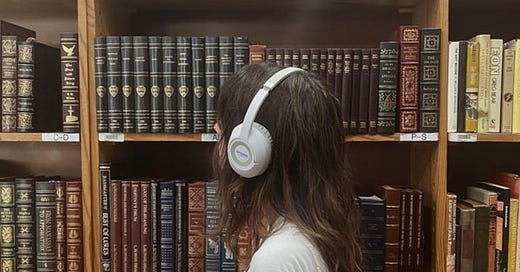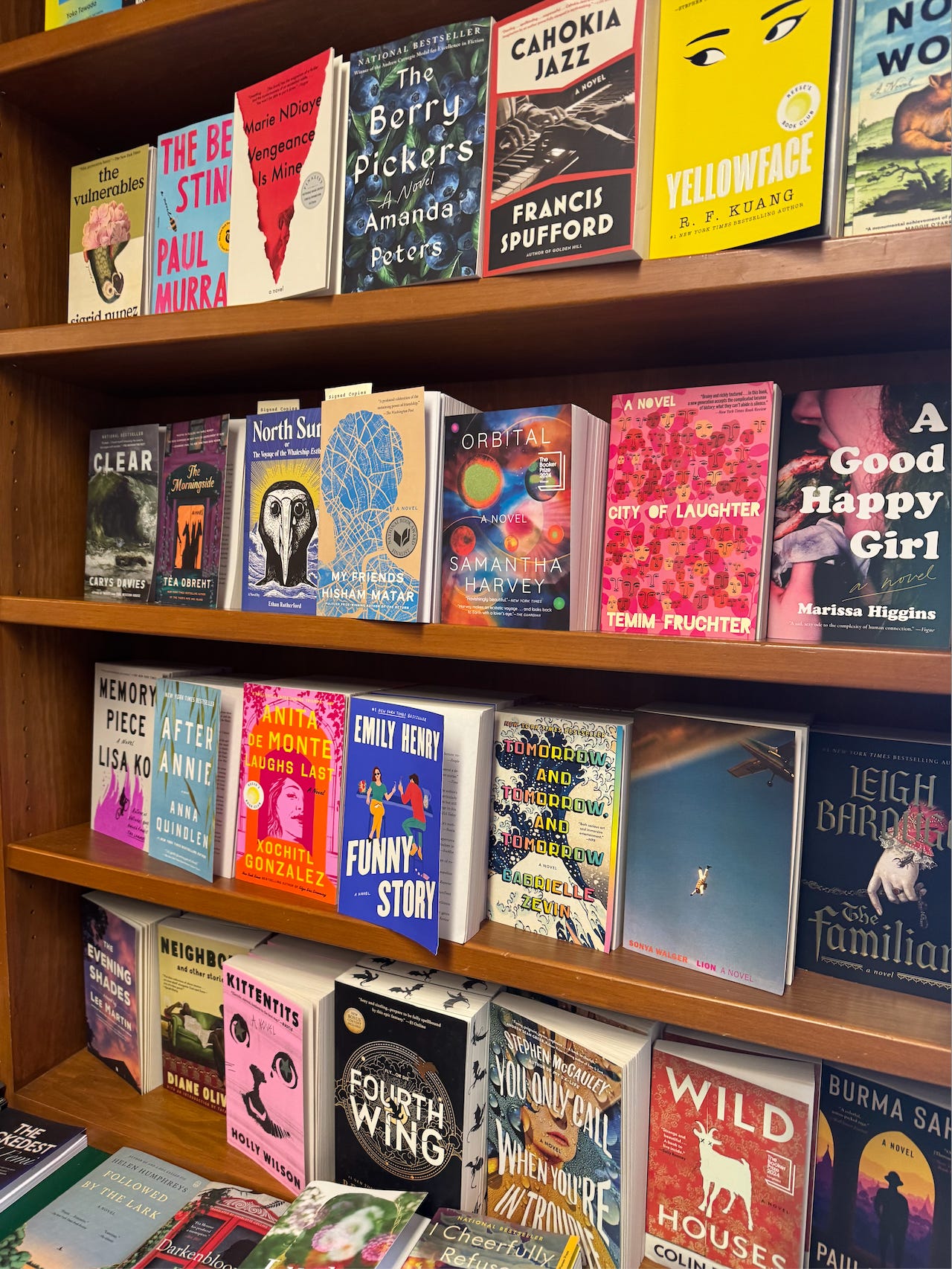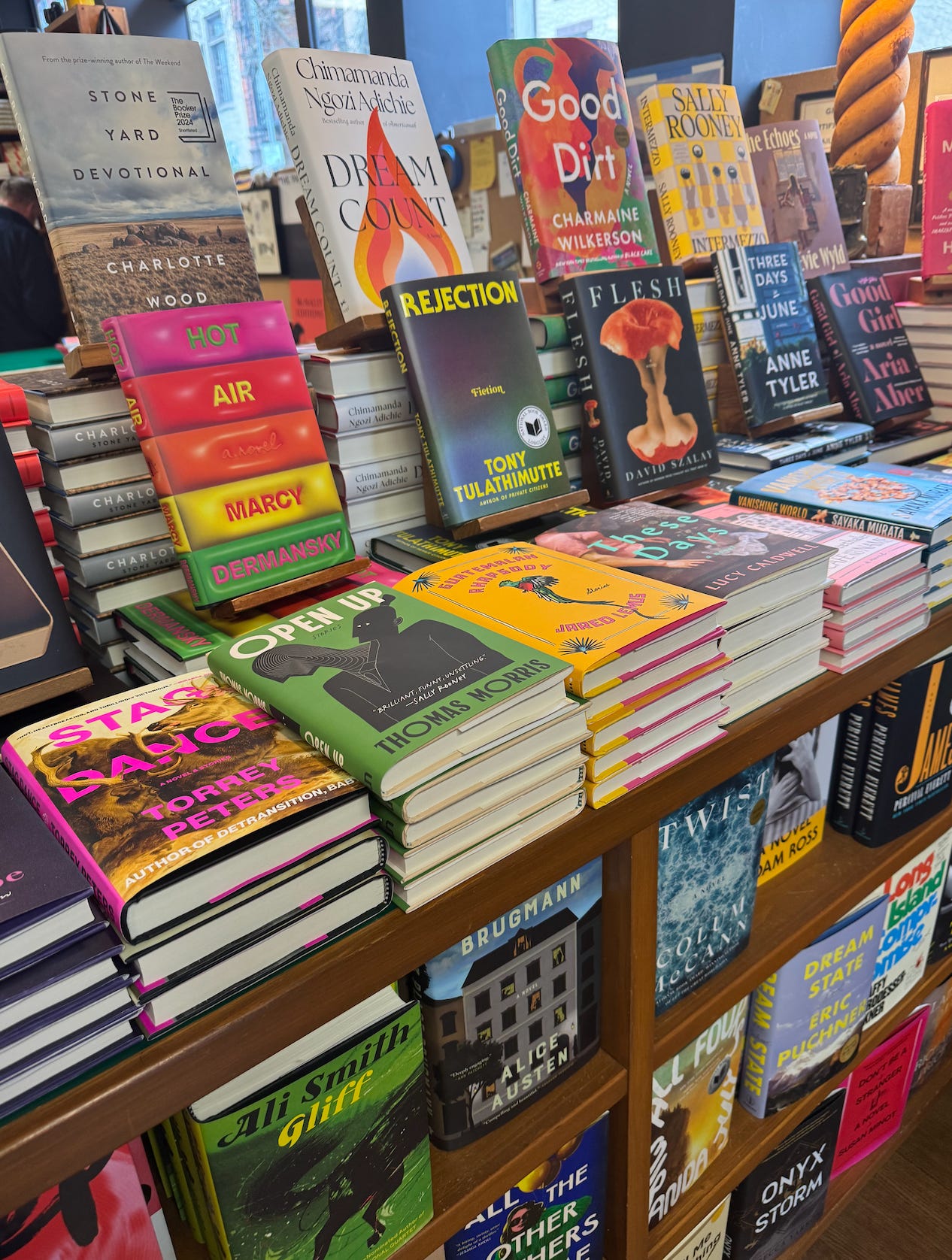I can’t stand audiobooks. I’m sorry, but it’s true. Before I dive into the reasons, I want to get one thing straight: This is not about whether or not audiobooks count as reading. Audiobooks count as reading. OK? Are we clear? I’ll say it again: Audiobooks count as reading. If you prefer audiobooks to physical books or digital books, bully for you. Read how you want to read. This is not a discussion of morals, this is a discussion of preferences.
And my preference is to read physical books – paperbacks if I have my druthers. I read better when I read a physical copy of something. What does “read better” mean? That depends on what you want to get out of a book and how you prefer to ingest your mental stimulation. For me, it has to do with the way my imagination engages with the text, how I absorb the words on the page and the story at large, and my capacity for analyzation and retention with both of these methods.
I don’t listen to audiobooks often because, well, I don’t like them. But in a recent effort to finish a book for my book club on time (I failed), I read half of a book in physical form and listened to the other half on audio. This mid-read-switch between the two methods elucidated the differences between my reading experience with a physical text and an audiobook and why I like physical books so much more. Here are the reasons why I hate do not enjoy audiobooks and why physical copies will always be the correct and superior choice for my reading.
The Speed Issue
There is something about the natural speed of my reading that I cannot get right with audiobooks. When I listen at 1.0 speed, the story is far too slow – languid, even – in a way that often feels mismatched for the pace of the story. Sure, this can be corrected by increasing the listening speed – 1.2x or even 1.5x. But again, this is not quite right to my ear, either. When the audiobook is sped up, the rush of the narrative voice takes me out of the experience of listening to the story.
When I read a physical copy of a book, my brain naturally adjusts the speed of intake and the pacing of the story without my having to override it manually. I can read faster during a tense part or slower during a more detailed, nuanced, or technical part of the book, and I don’t have to press any buttons to achieve this. You get the idea.
Also, I’m sorry, but if you’re “reading” audiobooks at 1.8x or faster, THAT is not reading. An acquaintance once told me she reads over 200 books a year. I was so impressed! She then went on to say she achieves this by listening to audiobooks every day at 2x speed. Bitch, be so for real!!! There is no way you are absorbing that, let alone enjoying the story. What is the goal other than to consume content as fast as possible, and poorly at that? Depressing.
The Voice Issue
When I switched mid-read from the physical copy to the audiobook version, I was struck by how the voice of the narrator changed my reading and the way I processed the story. The timbre and pitch of the narrator’s voice, coupled with the way she spoke the words on the page- the inflections, the emphases, even the pronunciation of names – all changed my interpretation of the text.
Part of the point of reading, I think, is the relationship we develop with the book in front of us. Whether we hate it, love it, find it alienating, devastating, or funny, no two people will relate to a book in the same way, and the way we relate to the text is what shapes our interpretation of its contents.
When I listen to an audiobook, the filtration of the story through the voice of another person warps my would-be relationship with the text itself. My imagination is blunted, my interpretation of nuance and cadence skewed – it becomes a different story than the one I would have consumed had I read a physical copy. I want to form my own mental pictures of how a character speaks, how their voice might sound, and the lilts, emphases, and affectations of their delivery of speech. When I listen to audiobooks, this is being determined for me, and I lose the opportunity to imagine and develop some of the most crucial components of the text: the characters’ voices and my relationship to the story.
The (Lack of) Subvocalization
When I read, I don’t hear the words on the page aloud in my head. I just… absorb it into my brain? I became aware of this phenomenon from reading
’s excellent post called On Starting a Book Well. In it, she relays an anecdote:I remember in high school when my English teacher told my class you could become a faster reader if you didn’t articulate each word in your head—just let your eyes absorb the words, she said. At the time, I didn’t know that was possible.
Ummm, I didn’t know this was possible until I read this!! Or I guess I intrinsically knew it was possible, but I didn’t know it was a phenomenon with a name. Hearing or “saying” each word on the page in your head while you read is called subvocalization. According to the research, this may help with the comprehension and retention of information, though, as you might imagine, this is an extremely difficult phenomenon to obtain hard data on.
When I am reading for leisure/entertainment, i.e., not studying, editing, or parsing a scientific text (all of which I do/have had to do for my job and grad school, respectively), I do not subvocalize. This is simply the natural state of my reading, it is not something I “try” to do or turn on and on off. I’m sure at one point I did subvocalize, but with years of practice, I no longer do it, and I don’t feel like it affects my retention or understanding of the text.
Ultimately, when I am listening to an audiobook, there is a sort of forced subvocalization since you are listening to each word rather than “letting your eyes absorb the words,” in the words of Sara’s high school English teacher. This is not a problem per se, it is just not how I prefer to read. It feels unnatural and clunky, and is another component of how my relationship to the text is altered via method of processing.
The Distraction of It All
This one is simple. If I am listening to something – podcast, audiobook, music, whatever – I am also doing something else. Walking the dog, cleaning, grocery shopping, driving– the audio component is always an accompaniment to whatever mindless task I am trying to complete. And although the tasks I am doing while listening to an audiobook are mindless and do not require deep, critical thought, they are still pulling a part of my brain away from the story. I often find myself having to rewind and listen to a section again. This is not the end of the world, obviously, but it is also not a problem I experience when reading physical copies of books.
If I am reading a physical copy of a book, I am sitting down and focusing on reading. I am not able to engage in anything else. If I do attempt another task, well, then I am no longer reading, am I?
I realize this is my fault. I realize this could be rectified if I would just sit the fuck down and listen to the audiobook, but it’s just not gonna happen for me guys. It doesn't and can’t work like that, and unfortunately, the distraction aspect mars my ability to take in an audiobook with the same focus and care that I would a physical copy of a book.
What do you think?! Do you love or hate audiobooks? Is there something I should be doing to make audiobooks more enjoyable? Tell me in the comments!!
✨Heads up fam! I’m using my Bookshop affiliate link for all titles recommended in this newsletter. If you buy them through these links, I earn a commission! So help a girl out!✨
📖 Currently reading:
The Killjoy by Anne Fine.
📚Recently finished:
Creation Lake by Rachel Kushner. I love Rachel Kushner, and I’ll read anything she writes. Unfortunately, this one was the book I mentioned above that I was trying to finish in time for book club, so due to rushing/half of this being on audio, I didn’t get as much out of this as I would have liked to. I still enjoyed it, though!
The Unworthy by Augustina Bazterrica. Super dark and slightly gory. Really liked it, but not as much as Tender is the Flesh.
💌 Email me book recs and other literary thoughts at emilygatesjohnson@gmail.com
🛍 Shop all Point of Departure recs (and more!) from my digital bookstore here.










To you last point, if you sit down to listen to the audiobook, you may as well just read the physical copy! You've put into words so many of my thoughts about audiobooks.
I think what it comes down to for me is I'm just not an effective auditory processor. It takes so much more mental energy for me to listen to something than for me to read it. I like podcasts but rarely listen to them for the same reason. It's just not how I prefer to put information into my brain. When available, I often read transcripts of podcasts and videos. My son has severe dyslexia and his auditory processing is next level. He is basically the opposite of me- he prefers to hear it but will read when necessary.
I always knew I disliked audiobooks. And now I know why. Couldn’t articulate it like you did but this is exactly it!!